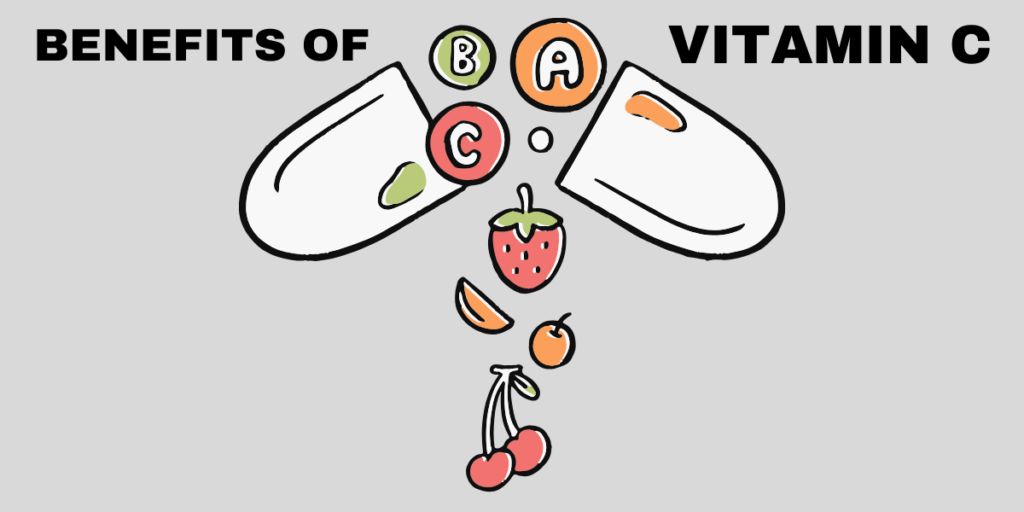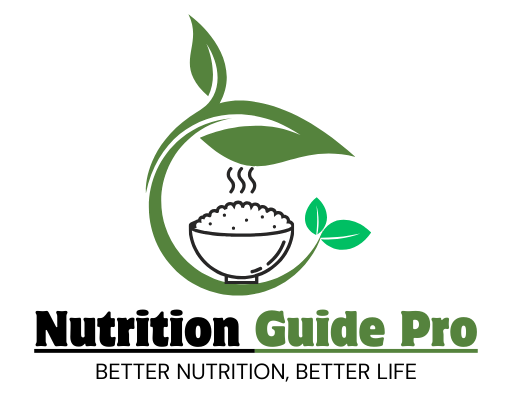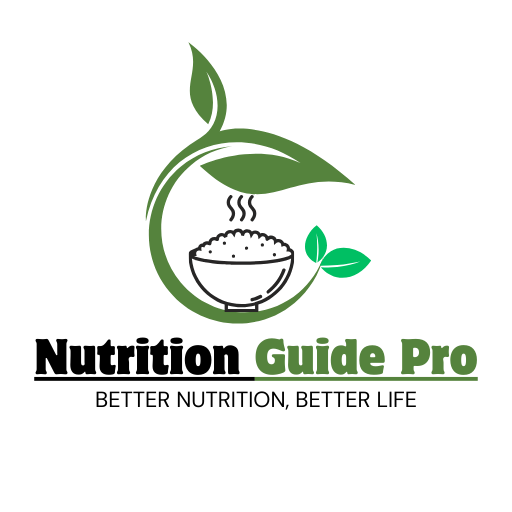Ensuring your child gets the right vitamin C intake for children is essential for their growth, development, and overall health. This nutrient helps support a strong immune system, boosting their ability to fight off infections and the common cold. It also strengthens bones and teeth and aids in iron absorption.
As parents, you may have questions about the recommended daily dose and how to meet your child’s daily requirements. By incorporating vitamin-C-rich foods into their meals and snacks, you can ensure they are getting the necessary vitamins to stay strong and healthy.
In this article, we are going to discuss the recommended daily dose of vitamin C for kids, its essential benefits for their growth and immune system, and how to ensure they get enough through foods, supplements, and practical tips.
What is Vitamin C?
Vitamin C, also known as ascorbic acid, is an essential nutrient that plays a crucial role in your child’s health. It’s a powerful antioxidant that helps the immune system fight off infections and illnesses, keeping your little one healthy.
Found in fruits like citrus fruits and vegetables like peppers, broccoli, and even potatoes, it’s a must-have for promoting growth and repairing tissues.
Kids need this vitamin to activate vitamins and support their normal growth, making it vital to include a variety of colorful fruits and vegetables in their diet for all-around health.
Four Key Benefits of Vitamin C for Kids
Vitamin C is a vital nutrient for children, offering numerous health benefits that support their growth, immune system, and overall well-being.
Here are four key reasons why Vitamin C is essential for your child’s health:
- Boosting the Immune System
Vitamin C, or ascorbic acid, is a vital component that bolsters the immune system. It activates white blood cells, the body’s first line of defense against infections and pathogens.
With sufficient Vitamin C, your child’s body is better equipped to fight off illnesses like colds, flu, and other seasonal diseases.
Ensuring your child gets their daily requirement of Vitamin C helps maintain a strong immune response and reduces the chances of frequent sickness.
- Supporting Growth and Development
As your child grows, Vitamin C plays a key role in their growth and development. This vitamin is essential for collagen production, a protein that supports the structure and strength of bones, muscles, teeth, and body cells.
Collagen is vital for tissue repair and helps keep the body strong and healthy as it develops. Adequate Vitamin C intake ensures that your child’s body can grow actively and maintain overall physical health.
- Enhancing Iron Absorption
Vitamin C helps the body absorb iron, a vital mineral that plays a significant role in the production of red blood cells. Without enough iron, children can develop iron deficiency anemia, which can result in fatigue and other health issues.
Since iron deficiency anemia is common among kids, especially those with unhealthy eating habits, ensuring they get enough Vitamin C improves the body’s ability to absorb iron and maintain healthy iron levels in the bloodstream.

- Fighting Free Radicals and Preventing Cell Damage
One of the lesser-known benefits of Vitamin C is its ability to fight free radicals. As your child’s body grows, free radicals are produced, which can cause cell damage over time. These harmful molecules can contribute to long-term health problems.
Vitamin C acts as an antioxidant, neutralizing these free radicals and preventing them from causing harm inside the body. By reducing free radical damage, Vitamin C helps protect your child from potential health issues as they grow.
Recommended Daily Vitamin C Intake for Children
The Recommended Dietary Allowance (RDA) for Vitamin C differs according to age, gender, and developmental phase. The table below outlines the Recommended Daily Vitamin C requirements for children at different ages and developmental stages, highlighting how their needs increase as they grow.
| Age Group | Vitamin C Requirement (mg/day) |
| Birth to 6 months | 40 mg |
| 7 to 12 months | 50 mg |
| 1 to 3 years | 15 mg |
| 4 to 8 years | 25 mg |
| 9 to 13 years | 45 mg |
| 14 to 18 years (Boys/Girls) | 65 – 75 mg |
| 14 to 18 years (Pregnant/Lactating) | 80 mg |
The National Institutes of Health (NIH) suggest that Vitamin C is crucial for maintaining good health, but it’s important to stay within the safe dose limits. Excessive intake, especially beyond the upper limit, can lead to toxicity and side effects like diarrhea, nausea, or stomach cramps.
You can easily meet these needs with fruits, veggies, and snacks—for instance, one orange provides enough Vitamin C to cover the daily requirement for a child. Ensuring they get the recommended dosage daily will help them stay healthy and thrive without the risks of an overdose.
Understanding the Safe Limit for Vitamin C Intake in Kids
When it comes to Vitamin C, knowing the maximum safe dose for kids is crucial. While Vitamin C is essential for a child’s immune system, growth, and overall health, taking too much can lead to side effects.
For instance, consuming higher doses can cause nausea, diarrhea, and stomach cramps. These symptoms often indicate excessive intake of Vitamin C, which can overwhelm the body.
The following table outlines the recommended Vitamin C doses for children based on their age, helping ensure they get the right amount for optimal health.
| Age Group | Maximum Vitamin C Dose (mg/day) |
| Children (1-3 years) | 400 mg |
| Children (4-8 years) | 650 mg |
| Children (9-13 years) | 1200 mg |
| Teenagers (14-18 years) | 1800 mg |
However, it’s important to note that exceeding the safe dose can lead to iron overload in kids, potentially causing iron toxicity and other issues. Therefore, while Vitamin C is beneficial, maintaining a balance is key to preventing any side effects.
A nutritionist or doctor can help guide you on the right daily dose to ensure your child is getting enough Vitamin C without exceeding the upper limit for their age group.
Best Sources of Vitamin C for Kids
To help your child get the most out of their Vitamin C intake, consider some of the best fruits for babies that are both fresh and nutritious:
- Citrus fruits like oranges, lemons, grapefruits, and tangerines (provide 70-90 mg of Vitamin C per serving).
- Berries, including strawberries, blueberries, raspberries, and blackberries, are abundant in antioxidants and minerals.
- Kiwi, also known as fuzzy fruit, offers a great dose of Vitamin C.
- Papaya, a tropical fruit, contains around 88 mg of Vitamin C per serving.
- Red bell peppers are an excellent source of Vitamin C; they are great for salads, toppings, or tomato sauce and soup.
- Leafy vegetables like spinach, kale, and Swiss chard provide both minerals and nutrients for growth.
These food options are not only tasty but also provide the necessary vitamins and minerals for your child’s healthy growth and development.
What Happens if a Child Takes Too Much Vitamin C?
If a child consumes too much Vitamin C, it can lead to some unpleasant side effects. While Vitamin C is an essential nutrient for growth and development, especially for immune support, the body doesn’t always need extra amounts beyond the daily requirement.
When kids exceed the recommended dose, overdose symptoms may appear, such as diarrhea, nausea, vomiting, and stomach cramps. These signs should not be ignored and may require a visit to the doctor for proper treatment.
In some cases, this can lead to more serious problems like kidney stones. Additional symptoms may include headache, joint, muscular, and stomach pain, exhaustion, and sleeplessness.
While it’s unlikely for a healthy child to experience an overdose from natural sources like fruits and vegetables, it’s important to be cautious when giving supplements.
Always consult a nutritionist if you’re unsure about how much Vitamin C is right for your child. The body is typically well-tolerated to Vitamin C, but when taken in excess, it’s important to determine the correct amount to avoid these adverse effects.

Signs and Symptoms of Vitamin C Deficiency in Kids
Here’s a detailed look at the key signs and symptoms of Vitamin C deficiency in children, highlighting the impact this crucial nutrient has on their overall health and development.
- Tiredness and fatigue are often early indicators that the child is not meeting their normal required levels of Vitamin C.
- Irritability and mood swings can occur when the body is lacking this essential nutrient, affecting the child’s emotional well-being.
- Poor eating habits and restrictive diets are common causes of Vitamin C deficiency, especially in kids who may avoid fresh fruits and vegetables.
- Visible signs of deficiency include joint pain, muscle pain, and leg pain, which are often due to weakened connective tissues and impaired collagen production.
- Easily bruised skin occurs because Vitamin C is essential for collagen synthesis, and its absence weakens blood vessels, making the skin more fragile.
- Slow wound healing is another noticeable symptom, as the body struggles to repair tissue without adequate Vitamin C to aid in collagen production.
- Frequent infections may occur because Vitamin C plays a vital role in supporting the immune system, and a deficiency weakens the body’s ability to fight off pathogens.
- Impaired bone growth can result from a lack of Vitamin C, as it is needed for the proper development of bone tissue.
- Swollen, bleeding gums are classic signs of scurvy, a disease caused by untreated Vitamin C deficiency, and can lead to more serious complications if not addressed.
- Catching signs early is crucial for timely correction, as delaying treatment can lead to irreversible damage like weakened bones or gum disease.
- Regaining normal levels of Vitamin C through diet or supplements can help resolve many of the symptoms, allowing the child to return to normal growth and development.
Can Vitamin C Supplements Be Given to Kids?
If you’re considering vitamin C supplements for your child, it’s essential to evaluate whether they really need them. According to the American Academy of Pediatrics (AAP), healthy kids should ideally get most of their vitamin C from foods like fruits and vegetables.
For babies and infants under 6 months, breast milk or milk formula typically provides all the vitamin C they need. However, if you’re worried about your child’s intake, it’s always wise to consult with your child’s doctor.
Depending on their health and diet, your doctor might suggest oral supplements or vitamin C gummies. While vitamin C is generally safe, it’s important to be cautious, as too much can cause nausea or diarrhea.
So, always stick to the right dosage and avoid over-supplementing. If you’re looking for an easier way to help your child meet their needs, gummies are widely available in the market, but they should be used with advised caution and professional guidance.
Tips to Ensure Your Child Gets Enough Vitamin C
Here’s how you can boost Vitamin C intake while also feeding your sick child tips to make mealtime stress-free and effective:
- Incorporate a variety of fresh fruits and vegetables into their daily meals.
- Add vitamin-rich foods to snacks or drinks for an easy way to boost their intake.
- Involve children in making food—when they help prepare meals, they’re more inclined to try new, nutritious foods.
- Avoid forcing your child to eat a particular type of fruit or vegetable, as it may cause them to lose interest.
- Keep meals fun and encourage trying different foods to avoid boredom with the same options.
- Be cautious with excessive cooking as it can destroy vitamin C—opt for fresh, minimally cooked options.
- Choose fresh, packed foods to ensure your child gets the full benefit of Vitamin C.
Conclusion
It is crucial for your child’s general health and development to receive an adequate amount of Vitamin C. From supporting their immune system to aiding in growth and iron absorption, the benefits of Vitamin C are undeniable.
By following age-specific guidelines and providing a variety of Vitamin C-rich foods, parents can easily meet their child’s daily needs.
However, it’s important to stay mindful of the safe limits to avoid overdose and recognize any signs of deficiency early.
In cases where food sources are not enough, Vitamin C supplements can be considered. With a few simple strategies, you can ensure your child thrives with the right balance of this vital nutrient.



